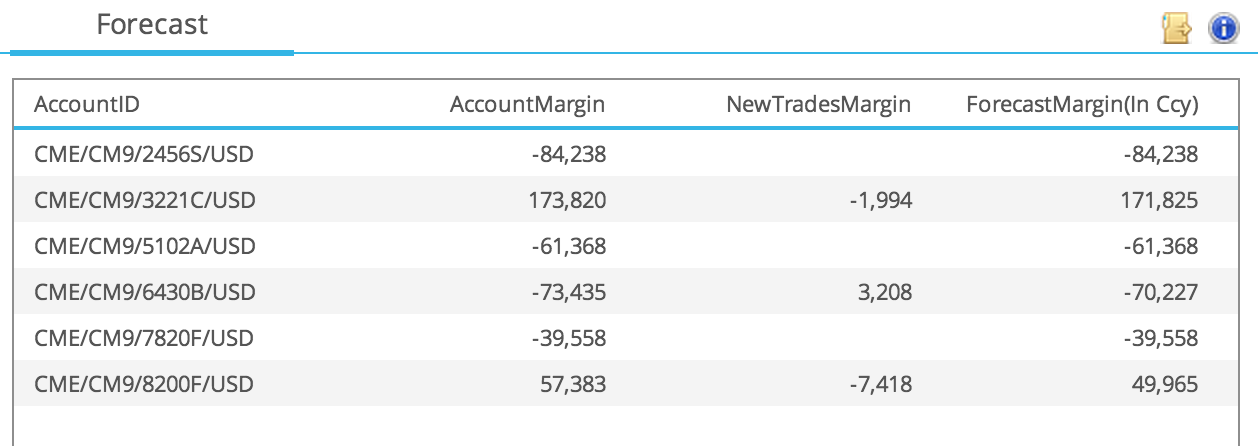Variation Margin and Initial Margin are required for a Cleared Swaps Portfolio. Each day a Clearing House will calculate margin requirements in an overnight batch and margin statements will be sent to Clearing brokers and then on to Clients.
Just as a trader or a portfolio manager should not leave for the day without knowing their Daily P&L, the same analogy applies to Variation Margin (main component of P&L) and Initial Margin (the funds needed to maintain the trades in the portfolio).
So how do you go about making a forecast of the Margin hours before the Clearing House runs it’s overnight batch?
Well you need the following three things:
- End of day settlement prices to mark to market your trades
- The new trades transacted that day and the outstanding trades with life-cycle events applied
- The ability to run margin calculations that closely match the Clearing House
The first two are straightforward and readily available from the Clearing House or Clearing Broker.
The third requires using tools provided by the Clearing House, tools provided by a Clearing Member or by tools provided by third-parties.
Lets look in more detail at specifics of the forecast.
Variation Margin
Using CHARM we run six accounts cleared at CME and forecast the VM at 4:30pm EST, by using the settlement prices and cleared trade files published by CME.
Which shows for each account:
- The new account VM
- New trades contribution to VM
- Forecast VM in each currency (in our case only USD)
Typically the first column will be dominated by new settlement curves causing the mark to market of outstanding trades to change significantly, as well as on certain days the movement of cashflows.
The new trade contribution will be much smaller as these trades will be executed close to mid-market and any VM here is the change in prices from execution time to end of day.
As VM is required in each currency a Clearing Broker will need funds in each of the required currencies to cover the requirement.
Initial Margin
Running the same CME accounts for IM.
Which shows:
- The new account IM
- New trades margin on a stand-alone basis
- Change in account IM by including the new trades
- Forecast IM (in base cuurency, USD).
And we can see that unlike VM, the new trades make a significant change to IM and this change is usually larger than the IM change of outstanding trades.
Importance of the Forecast
For a Clearing Broker the forecast is an important check on whether the margin held by the client is sufficient to meet the margin call. If not the Clearing Broker may have to post their own funds to the Clearing House and subsequently get the Client to send more cash or collateral.
For a Client knowing the margin forecast by end of day allows for efficient pre-funding of the margin account; an activity that can save time and money.
So a good forecast of margin before end of day is important for Clearing Brokers and Clients alike.
In active markets with higher volume of trading and market moves, a Clearing House may make intra-day margin calls. In this case the ability to run margin on-demand at any time of the day or at specific intra-day times (11am, 1pm, 3pm, 4:30pm) is desirable.
If Swap market trading activity increases to be more similar to Futures, we expect this to become the new normal.


